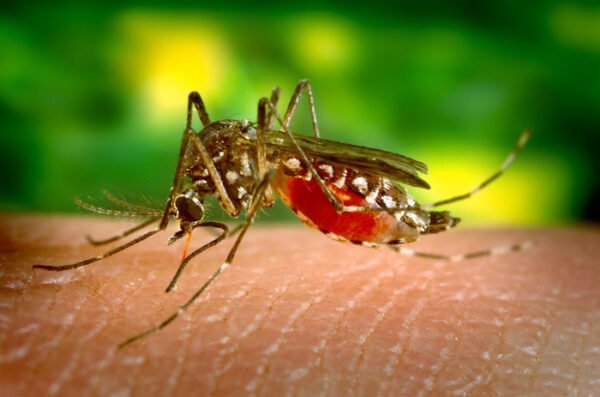Dengue cases linked to serotype 3 have surged in Brazil, particularly in the states of São Paulo, Minas Gerais, Amapá, and Paraná. According to data from the Ministry of Health, this increase became most noticeable in the final weeks of December 2024, when the DENV3 serotype began spreading more significantly, accounting for 31.8% of cases in Amapá, 28.7% in São Paulo, 18.2% in Minas Gerais, and 9.3% in Paraná.
This Content Is Only For Subscribers
To unlock this content, subscribe to INTERLIRA Reports.
Alert
This rapid growth has raised alarms for health services across the country, as the spread of DENV3 could lead to a significant spike in cases in the short term. This situation comes after a year marked by record diagnoses, as seen in 2024. The increase in dengue type 3 cases is particularly concerning because a large portion of the population remains susceptible. The virus has circulated at low levels in recent years, leaving many individuals without immunity to this serotype.
Types of Dengue
The dengue virus is transmitted through the bite of the female Aedes aegypti mosquito and consists of four distinct serotypes: DENV-1, DENV-2, DENV-3, and DENV-4, all capable of causing various forms of the disease. In Brazil, DENV-1 and DENV-2 are endemic. However, by 2024, all four serotypes were circulating in the country. Once exposed to a specific serotype, individuals gain immunity to that serotype but remain vulnerable to others. For context, in December 2023, only 0.32% of cases in Brazil were attributed to DENV-3, a figure that skyrocketed to 40.79% by December 2024.
Climate Change
The Ministry of Health has highlighted that the El Niño phenomenon, which impacted Brazil in 2024, along with the concurrent circulation of all four dengue serotypes, has contributed to the surge in arbovirus cases, including dengue. Climate changes caused by El Niño create ideal conditions for the proliferation of Aedes aegypti, exacerbating the situation.
Dengue Vaccine
The Qdenga dengue vaccine was added to the Unified Health System (SUS) in December 2023. It is effective against DENV3 and is available free of charge through the SUS, but only for children and adolescents aged 10 to 14. The National Health Surveillance Agency (Anvisa) has not approved the vaccine for individuals over 60 years old.
What to Expect for 2025
The Ministry of Health predicts that São Paulo, Rio de Janeiro, Espírito Santo, Tocantins, Mato Grosso do Sul, and Paraná will lead the number of dengue cases in 2025. These regions are expected to surpass the high incidence levels recorded in 2024, which were already concerning.
Rio de Janeiro
In the first weeks of 2025, the state of Rio recorded 810 cases of dengue, with 50 hospitalizations and no confirmed deaths. This data has been entered into the government’s disease monitoring system. In 2024, Rio recorded 302,316 probable dengue cases, over 9,000 hospitalizations, and 232 deaths. During the first three epidemiological weeks of 2024 (from December 31, 2023, to January 20, 2024), there were 16,011 cases.
On Thursday (09/01), the State Health Department (SES) confirmed the first case of dengue type 3 in 2025, involving a 60-year-old woman. Serotype 3 had not been detected in the state since 2007, except for two isolated cases in 2024—one in Paraty, in the Costa Verde region, and another in Maricá, in the Metropolitan Region.
Analysis:
The resurgence of dengue serotype 3 (DENV3) in Brazil represents a significant public health challenge, particularly as it coincides with record-high case numbers reported in 2024. This sharp increase underscores a critical vulnerability: a substantial portion of the population remains susceptible to DENV3, as the serotype had been largely dormant in recent years. The re-emergence of this serotype, alongside the continued circulation of all four dengue serotypes, heightens the risk of severe disease in previously infected individuals and places immense pressure on Brazil’s health system.
For states like Rio de Janeiro, the early detection of DENV3 cases in 2025 is alarming given the state’s history of high incidence and severe outcomes. With over 300,000 probable dengue cases recorded in 2024, preventive measures and efficient healthcare responses will be essential to avoid overwhelming medical services. Coordinated federal and state-level efforts, including enhanced surveillance, targeted vaccination programs, and public awareness campaigns, are imperative to effectively combat this escalating health crisis.




